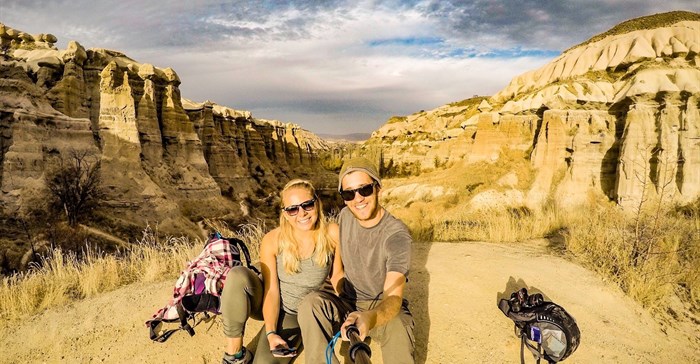The global perception of Africa is changing, and this change in perception is led by destinations previously not thought of or avoided altogether. Countries like the Congo, Rwanda, and Malawi is making an impression for all the right reasons.
The number of international visitors travelling to these historically avoided or forgotten destinations in Africa has seen a steady increase since 2000. Malawi, for instance, has had their tourism numbers increase “by an average of 12 percent a year over a 10 year period” according to the Malawi Tourism Guide, while the Congo’s tourism increased six-fold in six years as reported by the World Tourism Organisation.

Photo: Inspired Journeys - Tchegera Island, Congo
The reasons for avoiding certain destinations in Africa in the past are quite obvious: political unrest, lack of infrastructure and general safety levels being the first few to come to mind for the average traveller. However, the reasons for why these countries are now seeing a tourism boom is a much more nuanced topic and one that other countries in Africa and the world would do well to decode in order to achieve this level of growth in tourism.
Globalisation
One of the major contributing factors to the success of Africa’s remote destinations is that of globalisation. According to a European Scientific Journal report, globalisation has led to the fact that “tourists looking for experiences are not interested only in the “nearby” destinations, but the world becomes a potential destination”. The compounding factors of cheaper airfare, the internet, and more recently social media, has made it possible for countries like Malawi, Congo, Uganda, and Rwanda to paint a fresh and more accessible picture of themselves to the affluent travellers of the world.
Travel bloggers such as Natasha and Cameron of The World Pursuit have driven this education first hand, travelling through Africa and sharing their experiences with the world. Cameron and Natasha notes, “we have found an interconnected Africa filled with unique experiences, unparalleled landscapes, friendly people, and high levels of industry service. Sharing our travels with our audience has painted a new picture and perception of Africa in many minds."

Travel bloggers Natasha and Cameron of The World Pursuit
Adventure travel
One niche that quickly latched onto this fresh understanding of remote Africa, was that of adventure travel, lauded as the travel trend of 2016. This travel style has played perfectly into the hands of African destinations not traditionally known for luxurious hotels and established infrastructure who has now become more desirable amongst the growing class of international thrill-seeking travellers looking for a break from corporate confines and a departure from cliche travel experiences.
Adventure Travel companies like Ker & Downey Africa have seen a steady increase in global travelers proactively seeking out these remote and lesser known destinations as a result of this trend, and the awareness created through online media. As travel writer Larry Olmsted puts it, “Americans have become much more worldly and adventurous travellers.” Similarly, Lee Kelsall, CEO of Ker & Downey Africa mentions that “travellers are looking to push their boundaries, summit volcanoes, walk through the wild - anything but the usual - and there is no better place to push your boundaries than the forests, savannas, waterways and peaks of Africa.”

Spend a night next to one of the most active volcano's in Africa, the Nyiragongo Volcano, Congo
Transformational travel
2016’s adventure travel has evolved into what international publication Vogue has stated to be the travel trend of 2017 - transformational travel. Sarah Tjeenk Willink of Inspired Journeys defines transformational travel as a form of travel “where travellers are looking to make a positive impact on their environment”. Transformational travel draws travellers away from developed countries and popular, highly monetised travel destinations where travellers don’t feel that they can make an authentic impact as an individual, and increases interest in visiting villages and tribes in the depths of Africa. It is here, in the far reaches, amidst the raw elements of Africa that travellers feel they can make a personal impact on the places they visit and the wildlife and people they encounter.

Tours to the Congo Hounds community as part of the anti-poaching unit of Virunga National Park
As a result, Africa finds itself in the perfect position to benefit from trends in technology, social and travel in the coming years. With the correct management of these factors by the relevant tourism boards and governments of the developing world, African travel is set to flourish.







































